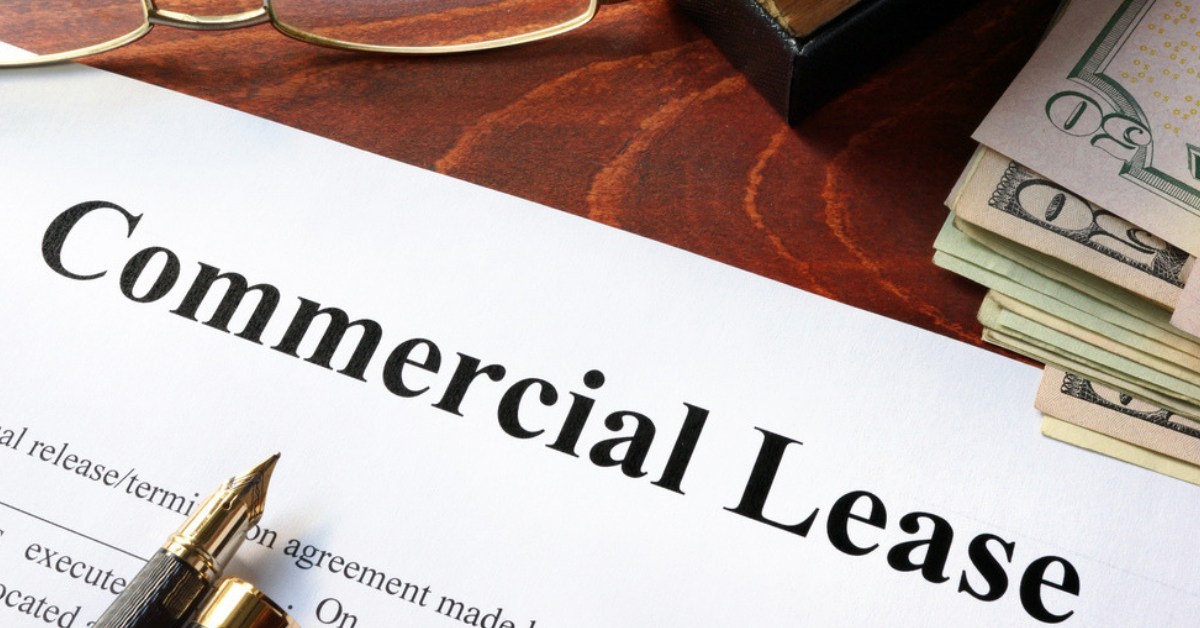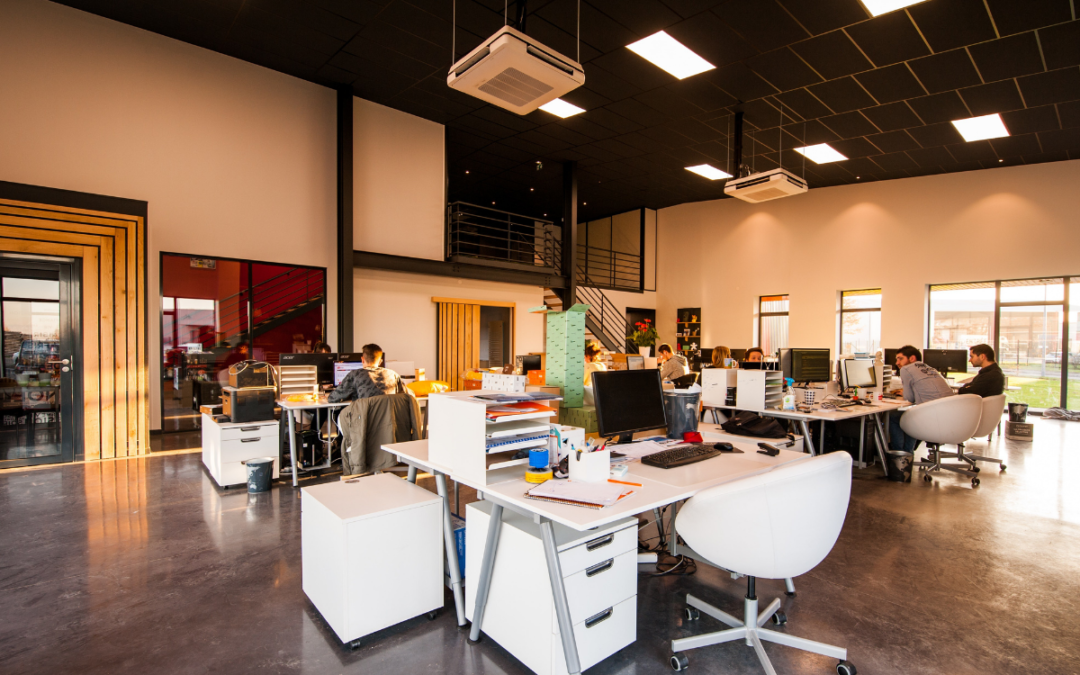When you’re ready to take your business to the next level then it’s time to start looking for a commercial lease. But before you sign on the dotted line, there are a few things you need to know. This article covers everything from the basics of commercial leases to the different types of properties you can lease. Keep reading to learn everything you need to know about commercial leases!
What is Commercial Lease?
A commercial lease is a document that outlines the terms of a rental agreement between a landlord and a tenant for commercial property. The lease should stipulate the length of the lease term and the amount of rent and how the rent will be paid, and any other terms and conditions of the agreement.
The 5-Year Commercial Lease Agreement India is the most common agreement in India. This gives the tenant enough time to establish their business and the landlord security in the form of a long-term lease. The rent amount is usually negotiated between the parties and can be paid monthly. Commercial leases can be a complex documents, so it is always advisable to seek legal advice before entering into any agreement.
Importance of Commercial Lease:

A commercial lease is a contract between a landlord and a tenant to use the commercial property. The lease is a legally binding document that outlines the terms of the relationship between the parties and is one of the essential documents in any commercial real estate transaction. A commercial lease is vital for several reasons.
1. It establishes the relationship between the landlord and the tenant. The lease sets forth the rights and obligations of each party and is the basis for resolving any disputes that may arise between them.
2. The commercial lease is crucial to the landlord’s due diligence in any real estate transaction. The lease sets forth the landlord’s expectations regarding the use of the property and the tenant’s obligations concerning the property.
3. The commercial lease is an essential tool for risk management. The lease sets forth the landlord’s rights and remedies in the event of a default by the tenant.
4. The commercial lease is crucial to the tenant’s due diligence in any real estate transaction. The lease sets forth the tenant’s rights and obligations concerning the property.
5. A commercial lease is an essential tool for risk management. The lease sets forth the tenant’s rights and remedies in the event of a default by the landlord.
Values of Commercial Lease:
1. It is an essential part of due diligence: A commercial lease agreement is essential to the due diligence process in any real estate transaction. The agreement sets forth the parties’ expectations concerning the use of the property.
2. It is a tool for risk management: A commercial lease agreement is a tool for risk management. The agreement sets forth the rights and remedies of each party in the event of a default by the other party.
3. It helps avoid disputes: A commercial lease agreement helps prevent conflicts between the landlord and the tenant. The agreement sets forth the rights and obligations of each party and is the basis for resolving any disputes that may arise between them.
Types of commercial leases:
There are many commercial leases, each with unique terms and conditions. The most common types of commercial leases are office leases, retail leases, and industrial leases.
Office Leases: An office lease is a contract for renting office space. The term of an office lease is typically 3-5 years but can be shorter or longer, depending on the agreement.
Industrial Leases: An industrial lease is a contract to rent industrial space. The term of an industrial lease is typically 5-10 years but can be shorter or longer, depending on the agreement.
Retail Leases: A lease is a contract for renting retail space, such as a store or a mall. The term of a retail lease is typically 3-5 years but can be shorter or longer, depending on the agreement.
How to get Commercial property for lease?
One way to get a commercial property for lease is to work with a broker. A broker is a professional who helps connect people looking to buy or sell a property. If you’re looking for commercial space for lease, a broker can help you find the right property that meets your needs. There are many benefits to working with a broker, including:
● A broker has access to a wide range of properties.
● A broker can help you negotiate the best terms for your lease.
● A broker can provide valuable insights and advice.
Working with a broker is an excellent option if you’re looking for commercial property for lease.
commercial property for lease
Another way to get a commercial property for lease is to work with a real estate agent. Real estate agents are professionals who specialize in helping people buy or sell the property. If you’re looking for commercial property for lease, a real estate agent can help you find the right property that meets your needs. There are many benefits to working with a real estate agent, including:
● An agent has access to a wide range of properties.
● An agent can help you negotiate the best terms for your lease.
● An agent can provide valuable insights and advice.
● An agent can help you navigate the paperwork and process of leasing commercial property.
What to look for in a commercial lease agreement?
As a business owner, it is essential to be well-informed about the ins and outs of commercial leasing. Here are some key points to keep in mind when reviewing a commercial lease agreement:
Location: The location of your business is essential for two reasons. First, you want to ensure that your business is located in an area convenient for your customers. Second, you want to ensure that you are located in an area zoned for your type of business.
Size: The size of the property should be appropriate for your needs. Consider the space you need for your business and future expansion plans.
Rent: The rent for a commercial property is typically higher than that for a similar residential property. Be sure to budget for the increased costs when considering a commercial lease.
Lease term: The term of a commercial lease is typically longer than a residential lease. Consider the time you will need to lease the property before signing a contract.
Renewal options: Most commercial leases will have the opportunity to renew. Be sure to consider your future needs when negotiating the terms of your lease.
Maintenance and repairs: The tenant is typically responsible for the upkeep of the property. Be sure to budget for the cost of repairs and maintenance when considering a commercial lease.
Utilities: The tenant is typically responsible for paying the utilities for the property. Check with the landlord to see what utilities are included in the lease.
Parking: The availability of parking can be an essential consideration when leasing a commercial property. Check with the landlord to see what parking options are available.
Amenities: The availability of amenities can be an essential consideration when leasing a commercial property. Be sure to check with the landlord to see what amenities are available.
Security Deposit: Most landlords will require a security deposit, a refundable deposit used to cover any property damage. The security deposit amount will vary depending on the landlord but is typically equal to one or two months’ rent.
Common Area Maintenance: Some leases include a charge for standard area maintenance (CAM), a fee used to cover the cost of upkeep for common areas such as lobbies, bathrooms, and hallways.
Taxes: The tenant is typically responsible for paying property taxes on the leased property. Be sure to budget for the cost of taxes when considering a commercial lease.
Insurance: Most landlords will require you to purchase commercial liability insurance, which covers your business if someone is injured on the property. These are just a few things you should look for in a commercial lease agreement.
Conclusion:
Commercial leases can be a great way to take your business to the next level. But before you sign on the dotted line, there are a few things you need to know. This article covers everything from the basics of commercial leases to the different types of properties you can lease. Now that you know all this, you’re ready to start your search for the perfect commercial lease!


